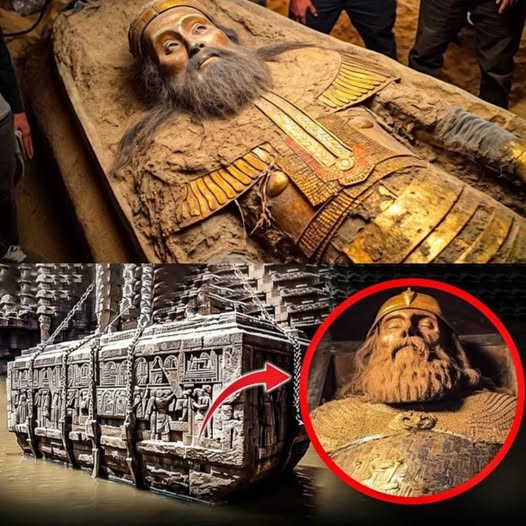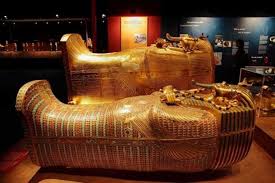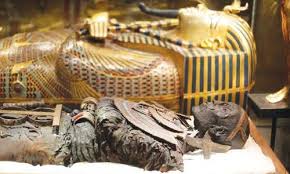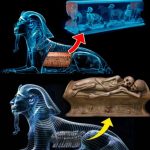Hot News: The Discovery of Gilgamesh’s Tomb

Archaeologists have stunned the world with a groundbreaking discovery—the epic tomb of the legendary giant Gilgamesh has reportedly been unearthed beneath the Euphrates River! Long thought to be mere myth, Gilgamesh—the hero-king of Mesopotamia’s oldest epic—may now be confirmed as a figure rooted in reality. This revelation not only excites scholars but also captivates the imagination of people worldwide, igniting a fervor about the intersection of history and legend.

The tomb, sealed for millennia, is said to contain vast treasures, intricate carvings, and possibly even the remains of the mighty ruler himself. Gilgamesh, celebrated in ancient literature as a demi-god with superhuman strength, has intrigued readers for centuries through the “Epic of Gilgamesh,” one of the earliest known works of literature. The prospect that such a monumental figure may have been a real person adds a tantalizing layer to our understanding of ancient civilizations.
As the excavation progresses, the implications of this discovery are profound. If confirmed, it could bridge the gap between ancient mythology and historical fact, reshaping our perceptions of Mesopotamian culture and its contributions to human civilization. The artifacts found within the tomb could provide invaluable insights into the lives, beliefs, and practices of the people who lived during Gilgamesh’s time, offering a window into a world that has long been shrouded in mystery.

Moreover, the possibility of uncovering the actual remains of Gilgamesh raises ethical and philosophical questions about how we view history and legend. What does it mean for humanity’s oldest stories if they are rooted in truth? This finding could redefine our understanding of storytelling, blurring the lines between myth and reality, and prompting us to reconsider the narratives that have shaped our cultures over millennia.
The excitement surrounding the discovery has drawn attention from historians, archaeologists, and enthusiasts alike, with many eager to see how this will unfold. While skeptics urge caution, pointing out the need for rigorous scientific validation, the potential for rewriting Mesopotamian history is undeniable.

In conclusion, the discovery of Gilgamesh’s tomb is not merely an archaeological achievement; it is a profound reminder of humanity’s enduring quest to understand its origins. As we stand on the brink of potentially redefining one of history’s most celebrated legends, the question remains: is legend about to become reality? With each new finding, we inch closer to uncovering the truths that lie beneath the sands of time, inviting us to explore the rich tapestry of our shared human heritage.











